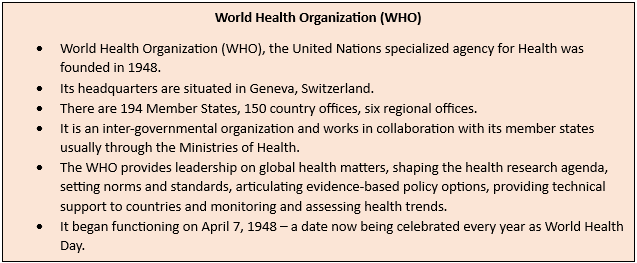- Courses
- GS Full Course 1 Year
- GS Full Course 2 Year
- GS Full Course 3 Year
- GS Full Course Till Selection
- Answer Alpha: Mains 2025 Mentorship
- MEP (Mains Enrichment Programme) Data, Facts
- Essay Target – 150+ Marks
- Online Program
- GS Recorded Course
- Polity
- Geography
- Economy
- Ancient, Medieval and Art & Culture AMAC
- Modern India, Post Independence & World History
- Environment
- Governance
- Science & Technology
- International Relations and Internal Security
- Disaster Management
- Ethics
- NCERT Current Affairs
- Indian Society and Social Issue
- NCERT- Science and Technology
- NCERT - Geography
- NCERT - Ancient History
- NCERT- World History
- NCERT Modern History
- CSAT
- 5 LAYERED ARJUNA Mentorship
- Public Administration Optional
- ABOUT US
- OUR TOPPERS
- TEST SERIES
- FREE STUDY MATERIAL
- VIDEOS
- CONTACT US
INDIAN PHARMACOPOEIA COMMISSION (IPC)
INDIAN PHARMACOPOEIA COMMISSION (IPC)
11-10-2023
-1697188110944.jpg)
Context
Recently, the Pharmacopoeial Discussion Group (PDG) announced the Indian Pharmacopoeia Commission (IPC) as a PDG member during the PDG Stakeholder’s meeting in Hyderabad.
Declaration of IPC as a Member by the PDG
- After 1 year of the pilot phase, based on IPC’s involvement, contribution and future potential, the decision on inclusion as a permanent member of PDG was taken. An official letter was sent to IPC by the PDG on 18th September 2023 regarding confirmation of membership of IPC in the PDG.
About the Indian Pharmacopoeia Commission
- It is an autonomous institution under the government of India's Ministry of Health and Family Welfare.
- Purpose: To establish national drug standards.
- Functions:
- Its basic function is to update the standards of widely needed drugs for the treatment of diseases that are common in this area on a regular basis.
- It releases official documents for raising the standard of medications by updating and adding to the Indian Pharmacopoeia (IP), a collection of monographs.
- Through the publication of the National Formulary of India, further encourages the rational use of generic medications.
- It specifies requirements for the identity, purity, and strength of medications that are fundamentally necessary for both human and animal health care.
- Additionally, it offers IP Reference Substances (IPRS), which function as a fingerprint to identify a test object and determine its purity in accordance with IP regulations.
What is Indian Pharmacopoeia (IP)?
- These standards are authoritative in nature. The regulatory authorities in India uphold them in order to ensure the quality of medicines.
- Legal acceptance of IP standards extends to Quality Assurance and legal disputes.
- This official document aims to improve the safety, effectiveness, and cost of pharmaceutical products sold in India by providing comprehensive quality control and assurance.
- It is a compilation of official drug analysis methodologies and specifications.
- Under the Second Schedule of the Drugs & Cosmetics Act, 1940 and Rules 1945 thereunder, the IP, or any portion of it, has legal status.
About the Pharmacopeial Discussion Group (PDG)
- It was established in 1989 by representatives of the United States Pharmacopeial Convention, Inc. (the U.S. Pharmacopeia), the Ministry of Health and Welfare (now the Ministry of Health, Labor, and Welfare, or MHLW), the Japanese Pharmacopoeia, and the European Directorate for the Quality of Medicines in the Council of Europe.
- PDG welcomed the World Health Organization as an observer in May 2001.
- In order to promote harmonization efforts, it typically meets twice a year and performs monthly status and technical teleconferences.
- Purpose of PDG: To harmonize pharmacopeial standards (excipient monographs and selected general chapters) in three major regions of the world.
- Harmonization reduces the burden on producers to carry out analytical procedures differently and with varied acceptance criteria to meet regionally varying pharmacopeial regulations.
Global Impact of IPC as PDG Member
- The inclusion of IP in PDG will significantly increase the visibility of Indian Pharmacopoeia on an international platform. It will establish IP as progressive pharmacopoeia which designs drug quality standards at par with global standards. Application of these standards will lead to the production of world-class pharmaceutical products for domestic and export markets.
- IPC’s inclusion in PDG will help in an effort towards its recognition by other countries.
- Harmonization of Standards: In order to ensure the quality and safety of pharmaceuticals on a global level, it will help IPC in working with other significant regulatory/standard-setting bodies to cooperate and harmonize pharmacopoeial standards.
- International Recognition: The PDG membership would improve the standards established by the IPC's recognition on a global scale. Given that they meet internationally accepted quality standards, this may also increase the acceptance of Indian pharmaceutical products in global markets.
- Improved Regulatory Compliance: IPC will gain by sharing best practices and information with other PDG members. Indian pharmaceutical companies will find it easier to comply with foreign regulations as a result of this agreement, which will assist India in harmonizing its regulatory procedures and practices with global norms.
- Access to Global Markets: Increased exports of Indian pharmaceutical products to other PDG members will be made possible by membership. Indian pharmaceutical companies will find it easier to enter international markets and trade obstacles would be reduced by aligning with international norms.
- Global Health Impact: PDG members' efforts to harmonize pharmacopoeial standards will support international efforts to guarantee the efficacy and safety of pharmaceuticals that are commercialized. This will assist in stopping the spread of shoddy or fake medications, which will directly affect public health everywhere.
Conclusion
The work of the IPC is essential to the Indian healthcare system since it guarantees that the public's access to high-quality medications that adhere to set standards. This promotes the Indian pharmaceutical sector while also preserving the population's health and well-being.





